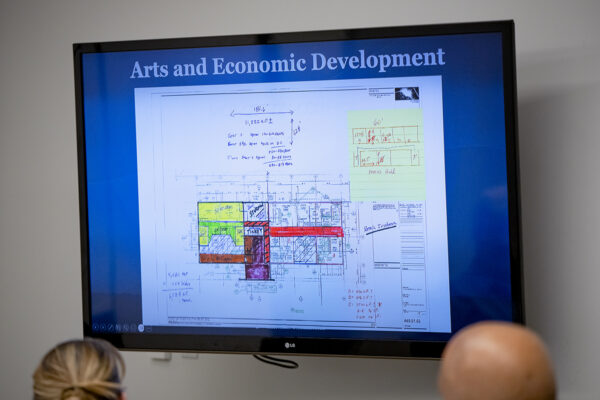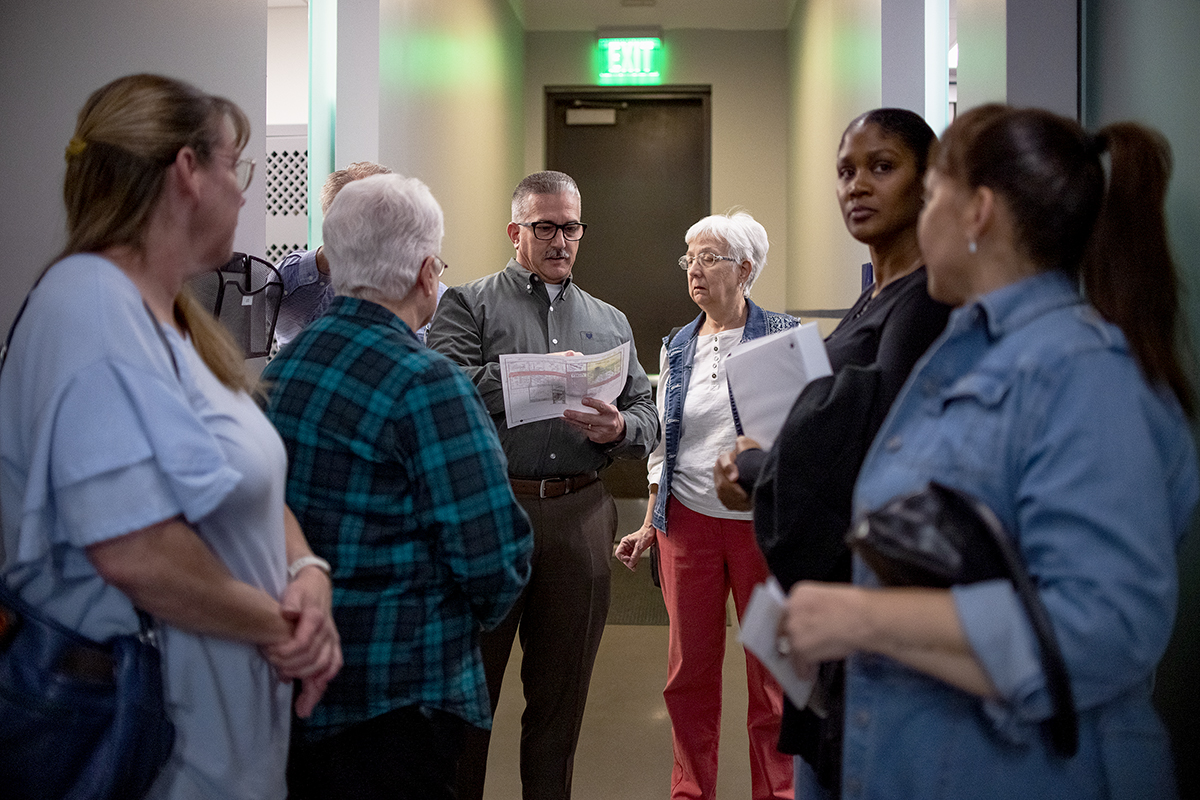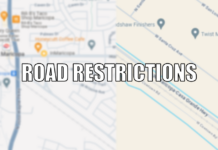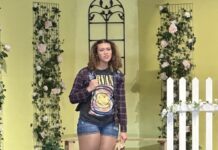Today, they’re jail cells and evidence rooms. One day, they might become art galleries and performance spaces.
That’s what the city envisions in a few years.
In a baby step toward converting the Maricopa police station into a future arts center, members of the city’s Cultural Affairs and Arts Committee toured the headquarters last week. It’s a move they hope will give a permanent home to the city’s burgeoning art community.
Envisioning an arts center
City Manager Rick Horst first broached the concept of an arts center during a future planning session in February. In this presentation, he offered an outline for what the city could see in repurposing the police station.
“We have the potential to set and become the benchmark city in Pinal County that supports the arts wholeheartedly,” said Peg Chapados, a local artist who also helps organize the annual Maricopa Main Street Marketplace.
CAAAC members have discussed the topic in meetings over the last few months, getting a closer view of sketches and inspirational photos of what the future center may look like.
This included a small theater, galleries, retail space and even workshops.
Following the tour, CAAAC opted to draft a statement requesting Maricopa City Council recommend holding a town hall or work session for more input from the arts community. However, there is no telling when or if that will happen.

Today, the city lacks dedicated art spaces. Limited gallery space exists at City Hall and Maricopa Library and Cultural Center, but few other places.
Meanwhile, Maricopa High School’s $12.2 million Performing Arts Center is the only location that offers lighting and acoustics made for music, dance and theater performances. Groups otherwise look for space in coffee shops, school gyms and even the Maricopa Agricultural Center.
It’s not an ideal scenario, said Maricopa Music Circle Co-Director Laura Olivieri.
“If you don’t have a place to call home or a calendar full of arts events, it can be confusing for the audience,” she said. “There is no home base for the arts in Maricopa, so where we’re able to perform is dependent on funding and availability.”
Renting space around the city is often too pricey, according to Olivieri.
“They’re just financially out of reach,” she said.
Rates for the Performing Arts Center begin at $132 per hour, plus janitorial and tech fees, while renting city areas like the atrium at the Maricopa Library and Cultural Center will run $130 per hour. That means groups can expect to spend at least $500 for a dress rehearsal and performance.
Finding room for regular rehearsals proves even more difficult.
“Rehearsals are often at an individual’s home and that can be really, really difficult,” Olivieri said. “Last week, I had 22 people in my living room.”







![City gave new manager big low-interest home loan City Manager Ben Bitter speaks during a Chamber of Commerce event at Global Water Resources on April 11, 2024. Bitter discussed the current state of economic development in Maricopa, as well as hinting at lowering property tax rates again. [Monica D. Spencer]](https://www.inmaricopa.com/wp-content/uploads/2024/04/spencer-041124-ben-bitter-chamber-property-taxes-web-218x150.jpg)

![3 things to know about the new city budget Vice Mayor Amber Liermann and Councilmember Eric Goettl review parts of the city's 2024 operational budget with Mayor Nancy Smith on April 24, 2024. [Monica D. Spencer]](https://www.inmaricopa.com/wp-content/uploads/2024/04/spencer-042424-preliminary-budget-meeting-web-218x150.jpg)



![Alleged car thief released without charges Phoenix police stop a stolen vehicle on April 20, 2024. [Facebook]](https://www.inmaricopa.com/wp-content/uploads/2024/04/IMG_5040-218x150.jpg)




